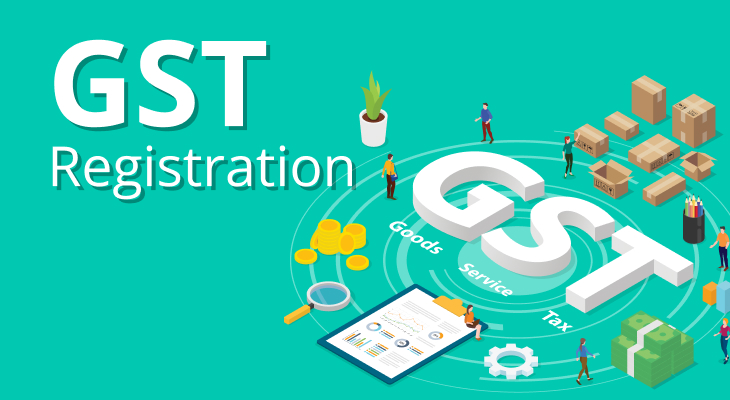Comprehending the Perks of Singapore GST Registration for SMEs
Comprehending the Perks of Singapore GST Registration for SMEs
Blog Article
Making Best Use Of Tax Obligation Performance: Expert Tips on Browsing the GST Enrollment Maze for Local Business
Navigating the detailed landscape of Item and Solutions Tax (GST) registration can be a labyrinthine job for small services aiming to optimize their tax obligation effectiveness. Understanding the eligibility standards, thorough paperwork requirements, tactical timing factors to consider, and proficient enrollment procedure pointers can dramatically influence a business's economic standing. Compliance with GST laws is paramount, and adhering to ideal techniques can improve operations and prevent potential mistakes. In this discussion, we will certainly discover skilled understandings and actionable guidance that can equip tiny organizations to browse the GST enrollment labyrinth effectively and enhance their tax effectiveness.
Qualification Requirements
Qualification requirements for Small Organization GST Enrollment encompass details requirements that organizations should satisfy to adhere to tax obligation policies. To get GST enrollment, an organization should have a yearly turn over exceeding the threshold set by the tax obligation authorities, which differs by nation. In addition, services included in inter-state supply of products or solutions, or those offering products online, may be called for to sign up for GST, irrespective of their turn over. It is essential for businesses to properly determine their qualification based upon these turn over thresholds to prevent fines for non-compliance. Singapore GST Registration.

Documents Demands
To successfully complete the procedure of GST enrollment, local business should ensure they have all necessary paperwork in order. The required documentation usually includes evidence of company enrollment or unification, identity and address evidence of business owner, pictures, financial institution account information, and evidence of the major business. Additionally, services need to provide information of their company activities, consisting of the products or services supplied. It is essential to ensure that all records are exact, as much as date, and in the specified style to stop delays or beings rejected throughout the registration procedure.
Keeping all required documentation arranged and easily accessible can enhance the registration process and assistance businesses conform with the requirements successfully. Careful interest to information and adherence to the documents standards are essential for an effective GST registration procedure for tiny services.
Timing Considerations
Considering the essential documents demands have been diligently dealt with, the next vital aspect for local business starting the GST enrollment procedure is the tactical monitoring of timing considerations. Timing plays a critical duty in GST enrollment, impacting not only conformity however likewise economic facets of the service. Small companies require to very carefully plan the timing of their my sources GST enrollment to take full advantage of advantages and lessen potential threats.

In addition, businesses ought to align the timing of their GST enrollment with their operational preparedness. Appropriate preparation, such as upgrading audit systems and training team, is vital to seamlessly integrate GST requirements right into day-to-day procedures. By tactically managing timing factors to consider, small organizations can browse the GST enrollment procedure effectively and enhance their tax obligation performance.
Enrollment Process Tips
Successfully navigating the GST registration procedure needs small organizations to implement tactical and proactive enrollment process pointers. This includes company registration records, proof of address, bank declarations, and recognition evidence of the company owners.
Furthermore, understanding the limits and demands for GST registration based upon the specific state or territory where the service operates is necessary. Some states have different turnover thresholds that cause compulsory registration, so being notified concerning these thresholds can aid companies intend in advance.
One more important idea is to take into consideration looking for specialist assistance from accounting professionals or tax consultants that focus on GST registration. Their competence can simplify the procedure, decrease errors, and ensure conformity with all regulations.
Conformity Best Practices
Small Recommended Reading organizations should focus on conformity to stay clear of penalties and maintain an excellent standing with tax authorities. Small company proprietors need to consistently review federal government guidelines and seek professional recommendations if required to guarantee they are meeting all needs. By including these compliance ideal methods into their operations, little services can navigate the intricacies of GST enrollment with self-confidence and efficiency.
Verdict
In verdict, small companies can browse the GST enrollment labyrinth by ensuring they fulfill eligibility standards, collect needed documents, take internet into consideration timing ramifications, comply with registration procedure ideas, and follow compliance ideal techniques. By maximizing tax obligation effectiveness via appropriate GST enrollment, services can improve their financial management and operations.
Navigating the complex landscape of Product and Services Tax Obligation (GST) enrollment can be a labyrinthine job for little businesses intending to optimize their tax efficiency.Eligibility needs for Small Business GST Enrollment include specific standards that services need to meet to comply with tax policies. The needed paperwork usually includes evidence of business enrollment or address, identification and unification evidence of the company proprietor, pictures, financial institution account details, and evidence of the major place of business. Furthermore, companies need to give details of their service tasks, including the products or services provided.Efficiently browsing the GST enrollment process calls for tiny organizations to apply tactical and positive enrollment procedure ideas.
Report this page